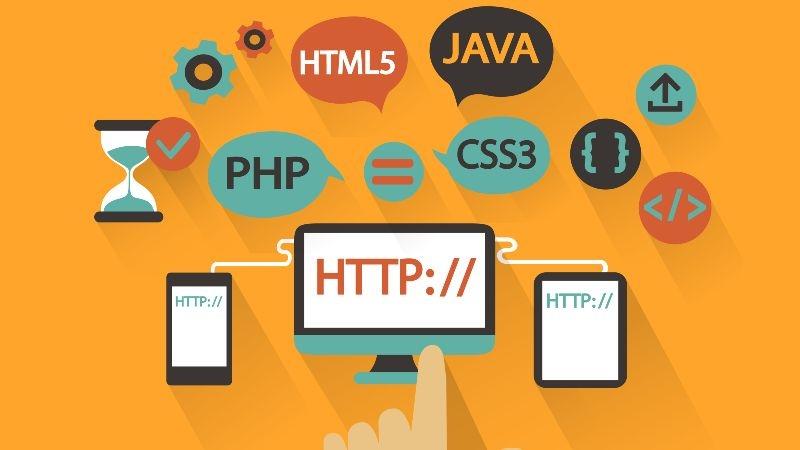How To Code For Beginners: All You Need to Know

Coding has exploded in recent years, changing from something used in computer games and the occasional
electronic device, to something which shapes the way that we live in the modern world. This means that
now is an excellent time for learning how to code for beginners.
Pretty much every device, electronic item, and modern piece of machinery contains at least a little bit
of code. As the number of use cases for coding grows, the number of coding jobs available will also
continue to grow.
We will begin by defining what coding is and why you should learn it. After this, we will move into
a
step by step guide to coding for dummies.
Why Should I Learn To Code?
As noted above, coding is an exciting new field that presents a world of opportunities for people who are
willing to learn. Despite what you may have heard, learning to code isn’t that hard - especially when
you compare it to the skills that are required to get the most skilled jobs.
- Some of the reasons why you should learn how to code include:
- Coding is fun! Imagine having the skills to be able to build your websites from scratch, to be able to create responsive mobile games, and to be able to program data analysis packages.
- Coding will give you valuable skills. Learning how to code for beginners will provide you with enough skills and experience to pursue a career as a coder or programmer.
- Learning how to code will provide job security.In the same way, being able to pursue a career as a coder will give you a significant amount of job security. Coders and programmers are in demand throughout the modern world, leading to a lot of jobs in the field.
Step By Step Guide To Coding For Dummies :

Although coding is relatively easy to learn compared to a lot of other technical skills, it is still
something that scares people.
At first glance, it may seem complicated, confusing, and very, very hard to master. I mean, how do you
go about learning how to code a website if you have no programming experience whatsoever?
The answer is simple - you follow our step by step guide to learning how to code for beginners! By the
end of this guide, you should have a clear understanding of the steps that are required if you want to
become a programmer, along with the things that you can do to help fast-track your journey.
Step 1: Work Out Why You Want To Learn How To Code
Now, the first thing that you need to do - before you even think about enrolling in courses or starting to watch YouTube videos about coding - is to ask yourself why you want to learn to code. Sit down and think carefully about what you hope to get out of it, why coding is a skill that you want to learn, and how much time and money you have to commit to it.- Consider:
- What sort of skills you want to end up with. Do you want to become a website developer? Or perhaps you would prefer to be able to build mobile apps or work in software engineering? You will need to think carefully about this because it will largely dictate the languages that you are going to learn.
- website developer?Is learning how to code simply something which interests you that you are going to be doing in your spare time? Or is programming something that you would like to pursue a career in further down the track?
- How much time and money you can commit. If you are only going to have a couple of hours per
week to commit to learning how to code, there probably isn’t a whole lot of point enrolling in an
intensive course. In the same way, if you want to join an intensive course with support, you will
have to be prepared to pay for it.
Identify and write down your coding goals and store them somewhere safe. These will quickly become the basis of your journey from novice to master coder.
Step 2: Choose The Right Languages

Different types of programming require different skills. For example, if you want to learn how to code a
website, you should learn languages like HTML, CSS, JavaScript and php.
Likewise, mobile app
development requires Java (for Android) or Swift (for iOS). Choosing the right language is extremely
important, which is why we have outlined some of the most popular among beginners below:
HTML
If you want to get into front-end web development, then you have to learn HTML. Used for marking up text so that computers can understand it, HTML (or Hypertext Markup Language) is one of the simplest languages to learn and is where a lot of people start learning how to code.CSS
CSS is used almost exclusively alongside HTML to style and format content on webpages. It allows you to do things like change the color and size of elements, change the position of elements on a webpage, and change the entire layout of a webpage. Like HTML, CSS is essential if you plan on becoming a front-end web developer.JavaScript
JavaScript is another language that is quite versatile and extremely widespread - much like Java and Python.Although it has historically been a front-end web development language that allowed the creation of interactive elements, JavaScript is becoming increasingly used for other things - including back-end web development.
Python
Python is super versatile, and it has a lot of different uses. A lot of academics and researchers use Python to create data analysis programs to help their studies.It is also behind the rise of new technologies like artificial intelligence and machine learning. It is easy to learn , and it is the most popular language taught in schools. That's why it's perfect for those who are looking for how to code for beginners.
Step 3: Choose The Right Resources To Help You Learn.

Textbooks: Code reference books are a great resource that every single beginner should make use
of. They contain all of the syntax and conventions of a language, allowing you to look things up
when you’re confused or unsure about how to proceed with your code.
YouTube videos: Online videos and video tutorials are great resources that can help you get
your head around complex concepts. You should use them alongside an online course or another
method of learning how to code for beginners.
Or you can learn from our website CodersByte.
Step 4: Download A Code Editor
Although a lot of online courses let you write code in a code editor directly in your browser, you need to realize that this isn’t how it works in the real world. Once you graduate from your online course, you will need to start writing your code directly into a code editor, so it’s a good idea to start practicing doing this now. Most programming languages have their code editors that you can download. They usually come complete with interactive development environments (IDEs) that will help you build clear, error-free code. Simple languages like HTML and CSS can be written straight into a simple text document if you find that easier.
Step 5: Practice Writing Your Programs
Once you have a basic working knowledge of your chosen language, you will need to start creating your programs and projects. Although you might feel that this is a long way away right now, you will be surprised how fast you progress once you start learning. The type of program or project you start building will depend on the language you learn. For example, if you are learning how to code a website using HTML/CSS, you might choose to start building your website. emember, practice makes perfect, and practice is the key to becoming a successful programmer. Practice, practice, and more practice!
Step 6: Keep Learning
In a way, programming languages are like any other language. They require regular practice if you want to become fluent in them, and you will forget things if you don’t practice using them. It is, therefore essential to make sure that you keep learning new things every day.
So there you have it - a simple 6 step guide to learning how to code for beginners. Now you have no excuses. Stop procrastinating, stop putting it off, and get out there and start learning how to code!